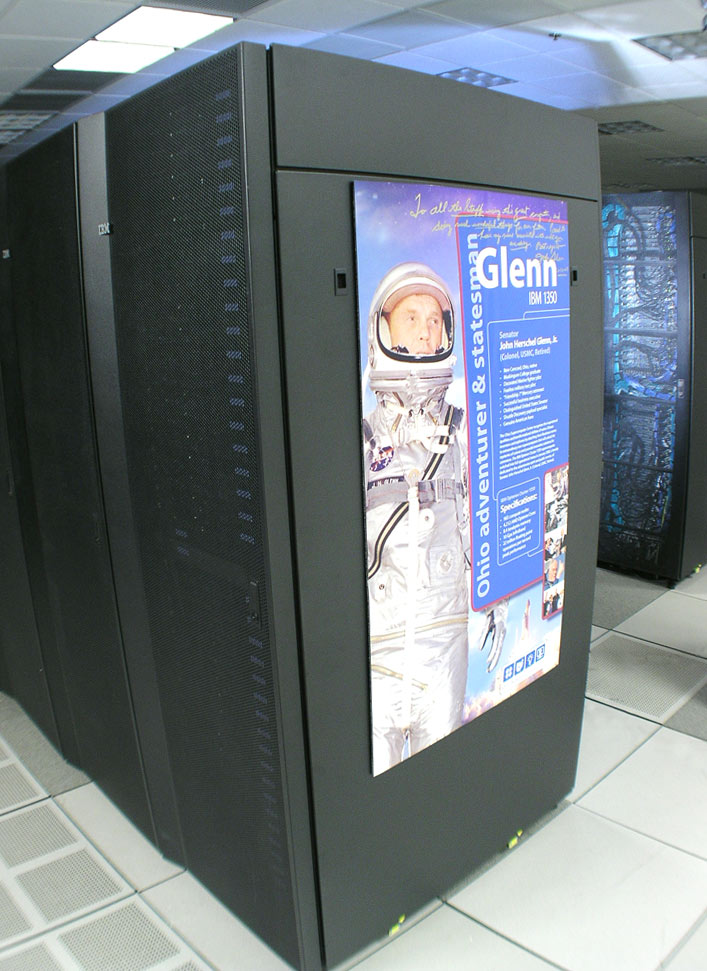Search our client documentation below, optionally filtered by one or more systems.
Search Documentation
Search Documentation

The Ohio Supercomputer Center's IBM Cluster 1350, named "Glenn", features AMD Opteron multi-core technologies. The system offers a peak performance of more than 54 trillion floating point operations per second and a variety of memory and processor configurations. The current Glenn Phase II components were installed and deployed in 2009, while the earlier phase of Glenn – now decommissioned – had been installed and deployed in 2007.
License problems
If you get a license error when you try to run a third-party software application, it means either the licenses are all in use or you’re not on the access list for the license. Very rarely there could be a problem with the license server. You should read the software page for the application you’re trying to use and make sure you’ve complied with all the procedures and are correctly requesting the license. Contact OSC Help with any questions.
This section summarizes two groups of batch-related commands: commands that are run on the login nodes to manage your jobs and commands that are run only inside a batch script. Only the most common options are described here.
Many of these commands are discussed in more detail elsewhere in this document. All have online manual pages (example: man sbatch ) unless otherwise noted.
The batch system provides several environment variables that you may want to use in your job script. This section is a summary of the most useful of these variables. Many of them are discussed in more detail elsewhere in this document. The ones beginning with SLURM_ are described in the online manual page for sbatch (man sbatch).
Slurm directives may appear as header lines in a batch script or as options on the sbatch command line. They specify the resource requirements of your job and various other attributes. Many of the directives are discussed in more detail elsewhere in this document. The online manual page for sbatch (man sbatch) describes many of them.
FFTW is a C subroutine library for computing the Discrete Fourier Transform (DFT) in one or more dimensions, of arbitrary input size, and of both real and complex data. It is portable and performs well on a wide variety of platforms.
The BLAST programs are widely used tools for searching DNA and protein databases for sequence similarity to identify homologs to a query sequence. While often referred to as just "BLAST", this can really be thought of as a set of programs: blastp, blastn, blastx, tblastn, and tblastx.
There are two ways to connect to our systems. The traditional way will require you to install some software locally on your machine, including an SSH client, SFTP client, and optionally an X Windows server. The alternative is to use our zero-client web portal, OnDemand.
New! Online Training Courses
Check out our new online training courses for an introduction to OSC services. You can get more information on the OSC Training page.
Overview
HPC, or High Performance Computing, generally refers to aggregating computing resources together in order to perform more computing operations at once.